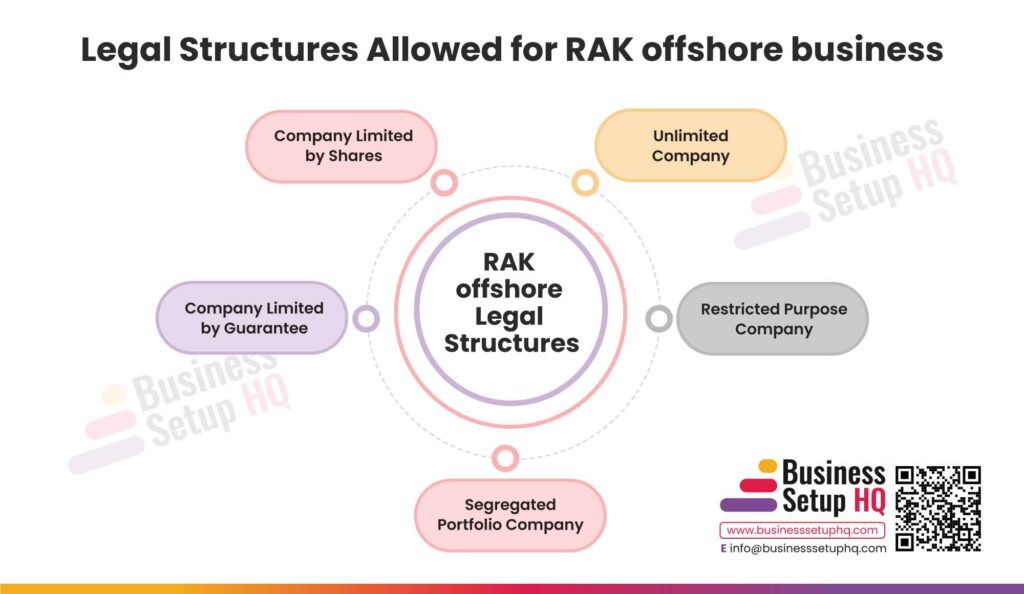Offshore Company Formation in Leading Jurisdictions Worldwide
Offshore Company Formation in Leading Jurisdictions Worldwide
Blog Article
Browsing the Globe of International Business: Insights on Offshore Company Formation
Offshore Company Formation presents a strategic avenue for international organization procedures. It uses remarkable advantages, such as tax obligation optimization and improved privacy. The process is not without its obstacles. Comprehending the complexities of various jurisdictions and regulatory needs is vital. As services take into consideration these options, the steps entailed can considerably impact their long-term success. What are the crucial aspects that can lead to reliable offshore management?
Recognizing Offshore Companies: Meaning and Objective
Offshore business have come to be a prime focus in global business discussions due to their special lawful and financial structures. These entities are developed in territories outside of the owner's nation of house, typically with positive regulative environments. Generally, overseas companies serve various purposes, such as asset protection, tax optimization, and enhanced personal privacy. They can run in multiple fields consisting of profession, innovation, and money, offering flexibility for global operations.The defining characteristic of an overseas Company is its capability to conduct business internationally while benefiting from reduced tax liabilities and regulative problems. This structure attract capitalists and entrepreneurs looking for to diversify their profiles and manage dangers successfully. In addition, numerous overseas jurisdictions supply motivations to draw in foreign investment, leading to a boost in the Formation of these firms. Recognizing the meaning and function of offshore firms is crucial for maneuvering through the intricacies of global business and resources flow.
Secret Benefits of Offshore Company Formation
The Formation of an offshore Company uses numerous engaging advantages that attract investors and business owners alike. Among the key benefits is tax obligation optimization; numerous jurisdictions give beneficial tax rates or exemptions, permitting businesses to make best use of earnings. Additionally, offshore business commonly delight in higher discretion, as many territories have rigorous personal privacy laws safeguarding the identifications of Company proprietors and shareholders.Another significant advantage is property security. Offshore entities can guard assets from political instability and economic declines in the proprietor's home country. These firms can assist in international trade, giving simple access to global markets and streamlining cross-border transactions.The flexibility in business framework additionally appeals to organization proprietors, as overseas business can be tailored to satisfy details operational demands. On the whole, the tactical Formation of an overseas Company can lead to boosted financial safety and security, operational efficiency, and a robust worldwide visibility.

Typical Difficulties in Developing Offshore Entities
Developing offshore entities offers numerous difficulties that companies need to navigate. Trick problems include regulative conformity, which can vary significantly across jurisdictions, and the influence of cultural distinctions on operations. Additionally, organizations should take into consideration the threats and prices connected with maintaining an offshore visibility, which can affect total stability.
Regulative Compliance Issues
When they seek to develop offshore entities, steering regulatory compliance issues postures substantial challenges for organizations. Each jurisdiction has its own set of guidelines and laws, which can vary commonly and might be hard to browse. Companies frequently face obstacles associated to tax compliance, anti-money laundering laws, and coverage requirements. Additionally, adjustments in global tax obligation laws can create uncertainty, making it vital for services to stay upgraded on conformity responsibilities. Failing to stick to these policies can cause severe penalties, consisting of penalties and reputational damages. Engaging and recognizing the legal structure with local experts is crucial for effective overseas procedures, making certain that businesses can operate within the confines of the regulation while optimizing their international technique.
Cultural Distinctions Impact

Cost Factors To Consider and Threats
Guiding through the financial landscape of overseas entity Formation offers different cost considerations and inherent threats. Initial arrangement costs often consist of legal costs, enrollment expenses, and compliance costs, which can gather considerably. Furthermore, recurring upkeep costs such as annual charges and accountancy solutions have to be factored in. Changing regulative settings in various territories present dangers, possibly leading to unforeseen expenses or legal issues. Companies may additionally encounter obstacles connected to taxation, banking, and reputational problems, which can affect success and functional effectiveness. Possible business owners must perform detailed due persistance and economic projecting to mitigate these dangers and guarantee sustainable growth. Understanding these cost considerations is essential for effective offshore service ventures.
Steps to Establish an Offshore Company
Establishing an offshore Company includes numerous critical actions that need cautious consideration. Trick aspects consist of picking the proper jurisdiction and guaranteeing conformity with regional policies, together with gathering required documentation. Recognizing these elements is necessary for a successful offshore company arrangement.
Choosing the Right Jurisdiction
Picking the ideal territory is essential for anyone aiming to establish up an offshore Company, as it can substantially impact the organization's lawful obligations, tax obligation obligations, and functional simplicity. Different aspects must be thought about, including the political stability, regulative atmosphere, and tax obligation rewards offered by potential territories. Popular options typically include nations with beneficial tax programs, such as the British Virgin Islands or Cayman Islands, because of their reduced or absolutely no tax obligation prices. In addition, the convenience of working and the reputation of the territory can influence capitalist confidence and market gain access check here to. Ultimately, an educated choice based upon detailed research will certainly assure the offshore Company is placed for long-term success and compliance with global criteria.
Needed Documentation and Conformity
When establishing an overseas Company, comprehending the needed documentation and conformity needs is important to assure a smooth process. Secret files commonly include a certification of unification, a memorandum and posts of association, and evidence of identity for supervisors and shareholders. Some jurisdictions might require additional details, such as service strategies or financial institution references. Conformity with regional laws is important, which often involves selecting a registered agent and maintaining a registered workplace. Regular coverage and adherence to tax commitments should additionally be taken into consideration. Failure to follow these needs can lead to charges and even dissolution of the Company. Thorough prep work and consultation with legal experts can help browse these intricacies properly.
Choosing the Right Territory for Your Offshore Company
How can one determine the most appropriate territory for an offshore Company? Choosing the best territory requires careful factor to consider of multiple variables. Initially, the legal and tax obligation environment plays a vital duty; territories with positive tax obligation regimes may improve organization profitability. Additionally, the political security and economic climate of a place can affect long-term company viability.Another essential aspect is the availability of monetary services and banking framework, which facilitate smooth operations. Prospective organization proprietors need to also take into consideration the simplicity of working, including the speed of registration and the quality of regulations.Furthermore, language barriers and social differences can influence procedures; as a result, aligning with a territory that lines up with company goals and personal comfort is necessary. Eventually, extensive research study and professional recommendations can assist business owners in making an informed decision that straightens with their critical objectives.
Compliance and Governing Factors To Consider

Ideal Practices for Handling an Offshore Company
Managing an offshore business calls for critical planning and thorough implementation to maximize efficiency and reduce threats. Establishing a robust conformity framework is essential to browse varying guidelines across territories. Routine audits and risk analyses help determine possible vulnerabilities.Moreover, leveraging neighborhood competence with partnerships with neighborhood experts can boost operational effectiveness and cultural understanding. Utilizing innovation, such as cloud-based administration systems, streamlines communication and data monitoring, allowing better decision-making. In addition, preserving transparent monetary records and making certain timely tax filings are vital to support the Company's honesty. Purchasing team training and growth cultivates a competent labor force, advertising advancement and adaptability.Finally, establishing clear performance metrics and crucial performance signs (KPIs) aids examine company progress and inform critical modifications. By sticking to these finest techniques, firms can properly manage their offshore procedures, making sure long-term success and sustainability in a competitive global marketplace.
Regularly Asked Concerns
What Is the Expense of Forming an Offshore Company?
The cost of forming an overseas Company varies widely relying on territory, legal needs, and services needed. Normally, expenses can vary from a few hundred to several thousand bucks, including enrollment, compliance, and annual costs.
Exactly how Long Does It Require To Establish an Offshore Entity?
The time called for to establish an overseas entity varies significantly, typically varying from a few days to numerous weeks (offshore company formation). Aspects influencing this period consist of jurisdiction, called for paperwork, and the efficiency of the solution provider entailed
Can People Form Offshore Companies Without a Business Partner?
Individuals can undoubtedly form offshore business without a business companion. Lots of territories allow single-member entities, encouraging business owners to establish and handle their organizations separately, while still benefiting from prospective tax obligation advantages and legal defenses.
Are There Any Tax Benefits for Foreign Investors?

What Type of Companies Commonly Make Use Of Offshore Companies?
Offshore firms are regularly made use of by different sectors, including ecommerce, technology, and finance. These entities usually serve purposes such as asset defense, tax optimization, and personal privacy, appealing to both multinational corporations and individual business owners. Offshore firms have come to be a focal factor in international service conversations due to their unique lawful and monetary frameworks. They can operate in several sectors including technology, money, and profession, giving versatility for worldwide operations.The specifying characteristic of an offshore Company is its capacity to conduct service worldwide while benefiting from reduced tax obligations and regulatory problems. Additionally, overseas companies often delight in greater confidentiality, as several jurisdictions have rigid privacy regulations shielding the identities of Company proprietors and shareholders.Another substantial benefit is possession security. These business can help with worldwide profession, supplying simple accessibility to global markets and simplifying cross-border transactions.The adaptability in corporate framework likewise appeals to company owners, as offshore companies can be tailored to fulfill details operational requirements. Selecting the best jurisdiction is important for anybody looking to set up an overseas Company, as it can considerably impact the service's lawful responsibilities, tax obligations, and functional simplicity.
Report this page